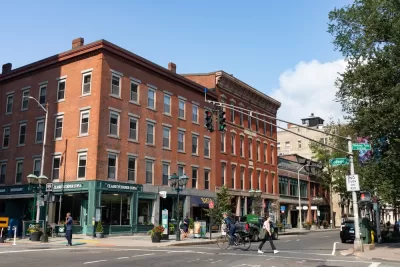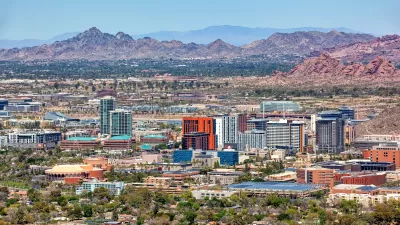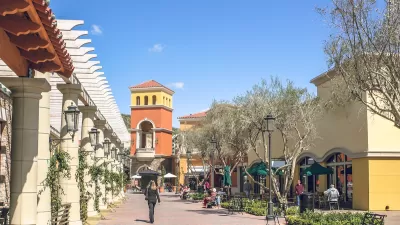Despite recent claims to the contrary, the concept of the 15-minute city promotes freedom of mobility and universal access to a city’s resources and amenities.

Proving the old adage that when all you have is a hammer everything looks like a nail, conspiracy theorists have descended on the 15-minute city concept as the latest target of alt-right paranoia. Having discovered the concept earlier this year, some conspiracists are claiming that 15-minute city policies will implement mandatory restrictions on movement and take away personal freedoms.
They won’t.
Writing in The Washington Post, Lara Williams describes how the theories took hold, starting with an uproar over an innocuous plan to improve pedestrian facilities and reduce the need for car trips proposed in Oxford, England.
Mix high levels of distrust in governments and institutions with pandemic lockdowns, an underlying conspiracy theory about a “new world order” and an urban planning concept backed by an international network of mayors, and garnish with a toxic car culture. Marinate on the internet, and voila! You now have a lot of people primed to believe that local councils are going to imprison them in 15-minute zones.
Sander van der Linden, author of Foolproof: Why We Fall for Misinformation and How to Build Immunity, suggests that the best way to prevent the spread of these theories is to preempt misinterpretations and train people to recognize manipulation techniques employed by promoters of conspiracy theories. To recap: the 15-minute city is a guiding principle toward reducing the need for car trips and improving public health and public spaces. “It’s really quite wholesome, rooted in making humans and the planet happier.”
FULL STORY: No, 15-Minute Cities Aren’t a Threat to Civil Liberties

Planetizen Federal Action Tracker
A weekly monitor of how Trump’s orders and actions are impacting planners and planning in America.

Maui's Vacation Rental Debate Turns Ugly
Verbal attacks, misinformation campaigns and fistfights plague a high-stakes debate to convert thousands of vacation rentals into long-term housing.

San Francisco Suspends Traffic Calming Amidst Record Deaths
Citing “a challenging fiscal landscape,” the city will cease the program on the heels of 42 traffic deaths, including 24 pedestrians.

Amtrak Rolls Out New Orleans to Alabama “Mardi Gras” Train
The new service will operate morning and evening departures between Mobile and New Orleans.

The Subversive Car-Free Guide to Trump's Great American Road Trip
Car-free ways to access Chicagoland’s best tourist attractions.

San Antonio and Austin are Fusing Into one Massive Megaregion
The region spanning the two central Texas cities is growing fast, posing challenges for local infrastructure and water supplies.
Urban Design for Planners 1: Software Tools
This six-course series explores essential urban design concepts using open source software and equips planners with the tools they need to participate fully in the urban design process.
Planning for Universal Design
Learn the tools for implementing Universal Design in planning regulations.
Heyer Gruel & Associates PA
JM Goldson LLC
Custer County Colorado
City of Camden Redevelopment Agency
City of Astoria
Transportation Research & Education Center (TREC) at Portland State University
Jefferson Parish Government
Camden Redevelopment Agency
City of Claremont





























